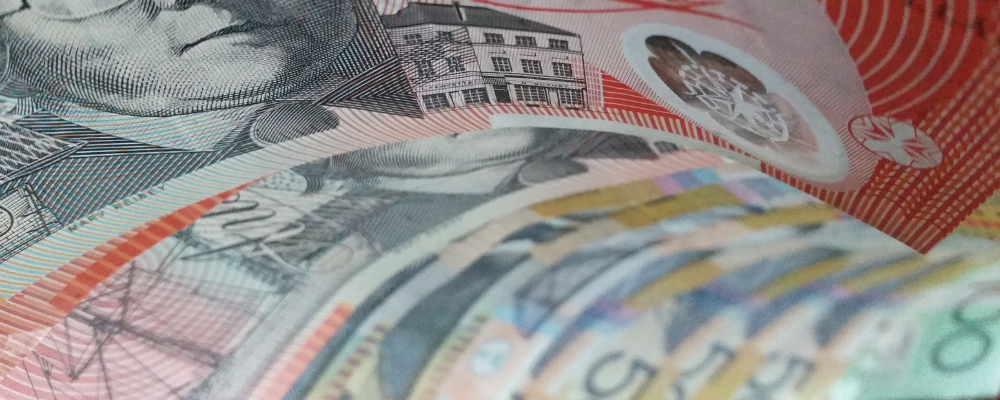Cash your super before you die. Make sure your super is gone by the time you go, unless you have a tax dependant.
Cash Your Super Before You Die
You probably wonder why. Having super is good. Being frugal is good. Leaving super for your children is good. It sounds like a nice thing to do. And it is… but if you don’t cash out in time, your adult children will receive less than you think.
If you wait too long, your super will leave a nasty tax-bill behind. And your children will remember what – your super or the tax bill that came with it?
But you probably shake your head and remember the terrible time when your spouse died. You had both just turned 65. And back then you received his or her entire super without any tax to pay. So why can’t you do the same for your children?
Death Benefit Dependant
The answer is just one phrase – tax dependant – also referred to as a death benefit dependant.
Death benefit dependant is the term the ITAA97 uses. Tax dependant is the colloquial term most people, including the ATO, use. Two different words. Same thing.
As a spouse you qualified as a tax dependant. A spouse, a child under 18 as well as anybody in an interdependency relationship with or financially dependent on the deceased is considered a tax dependant. And tax dependants receive the lump sum death benefit tax-free.
But your children are neither under 18 nor live in an interdepencey relationship with or are financially dependant on you. So they don’t qualify as tax dependants. And so they will pay tax on any taxable component that comes their way.
Sole Purpose
This concept of a tax dependant links back to the sole purpose of superannuation. Its sole purpose is to provide for your retirement and/or your tax dependants when you no longer can. For that purpose your super received massive tax concessions over the years.
But anything that is left over when you die without tax dependants clearly wasn’t needed for your retirement or tax dependants. So the legislator wants those concessions back.
Those concessions were never intended for your financially independent children. And so they charge your adult children a so-called ‘super death tax’. So this is why you need to cash your super before leaving it to a non-tax dependant.
Cashing Super
Cashing your super just means moving it out of the super environment. You do this by paying a member benefit to yourself – be it as a pension or a lump sum.
A lump sum payment can be in cash. But a lump sum can also be in specie. So you don’t sell the asset, but transfer the title from the corporate trustee to yourself.
When To Cash In
But picking the right time to cash your super is not easy. Here are six factors to consider, some predictable, some impossible to predict.
# 1 Family Situation
While your children are little and your spouse alive, you have plenty of tax dependants. So you don’t need to worry about super death tax. You need to worry about life insurance.
But when your spouse has passed away and all your children are financially independent, then super death tax is an issue, since you no longer have any tax dependants.
# 2 Taxable Components
Your super consists of a tax-free and taxable component but either might be nil.
If your entire super is in the tax-free component, you don’t need to worry about super death tax. None of your beneficiaries will pay any tax on your super.
But if most or all of your super is in the taxable component, then a 30% tax rate for any untaxed and 15% for any taxed element looms large over your non-tax dependants.
# 3 Marginal Tax Rate
The higher your marginal tax rate, the more you save by leaving your super in your fund. If your marginal tax rate is 45% tax + 2% Medicare, then leave your super where it is as long as you can.
If you have no other income and your super earnings are under the tax-exempt threshold, then you pay no tax anyway – be it within super or outside of super. So then you might as well take it out.
# 4 Timing
It is difficult to get the timing right. If you cash your super too early, you might pay more tax outside of super than your beneficiaries pay in death tax.
But if you don’t cash your super before you die, you might waste part of your family’s legacy on super death tax.
# 5 Capital Gains Tax
When you die, your SMSF must either sell the assets and then pay cash or transfer the title to pay in specie. Either way – sale or transfer – you are looking at a CGT event and hence a potential realised capital gain.
While you are alive and in pension phase, a realised capital gain isn’t an issue since your super is exempt from tax anyway. But once you are gone, a realised capital gain might result in a large tax bill for your children to deal with.
# 6 Fate
Call it fate, destiny, divine intervention or something else. Accidents happen. Nobody knows how much time they have left.
_____
So these are six factors to consider to work out whether and when you should cash your super. If you get stuck, please email or call us. There might be a simple answer to your query.
MORE
Disclaimer: numba does not provide specific financial or tax advice in this article. All information on this website is of a general nature only. It might no longer be up to date or correct. You should contact us directly or seek other accredited tax advice when considering whether the information is suitable to your circumstances.
Liability limited by a scheme approved under Professional Standards Legislation
